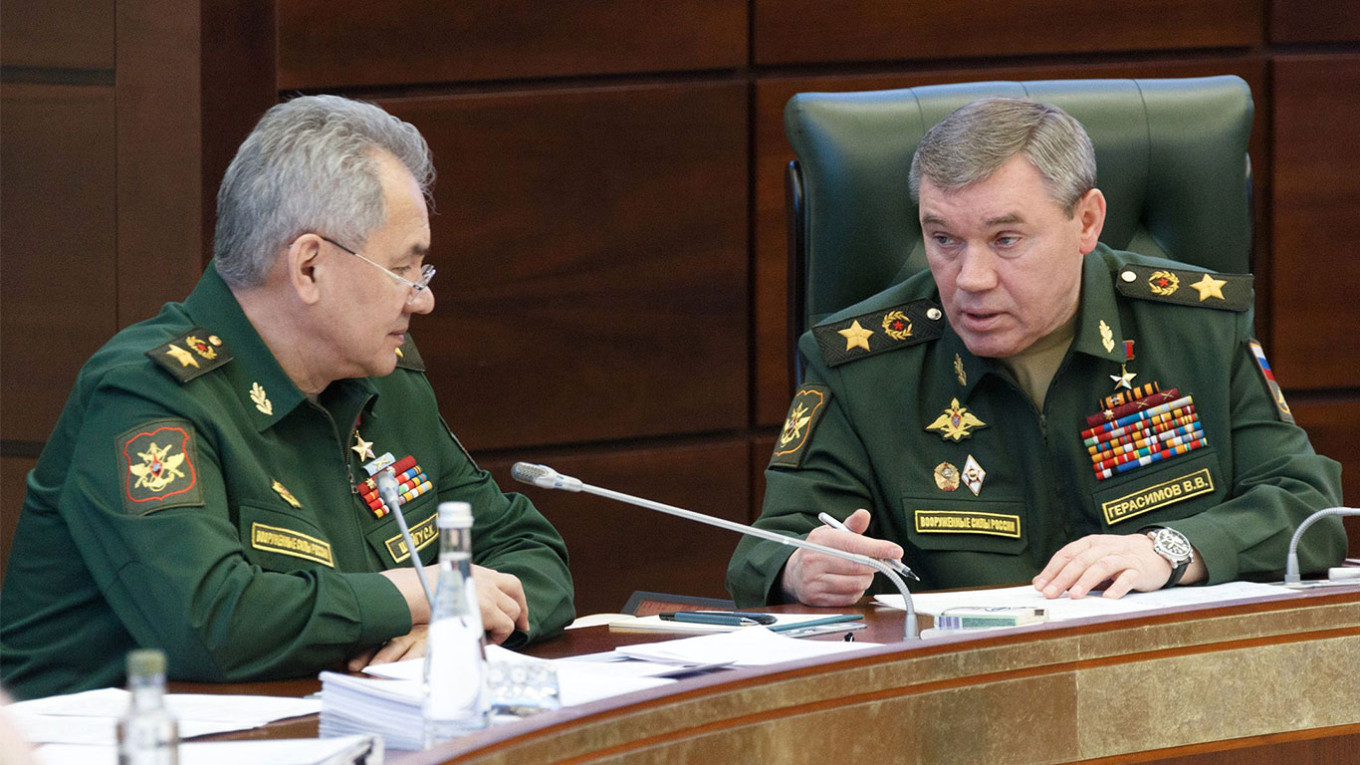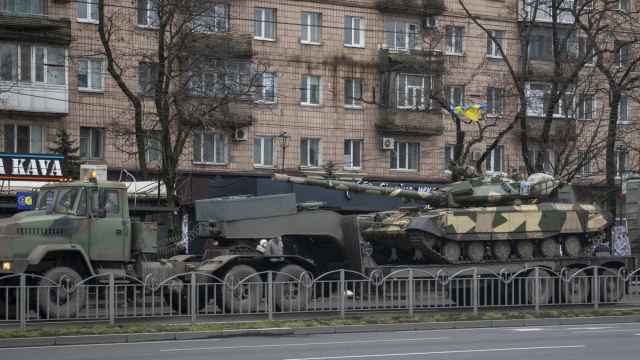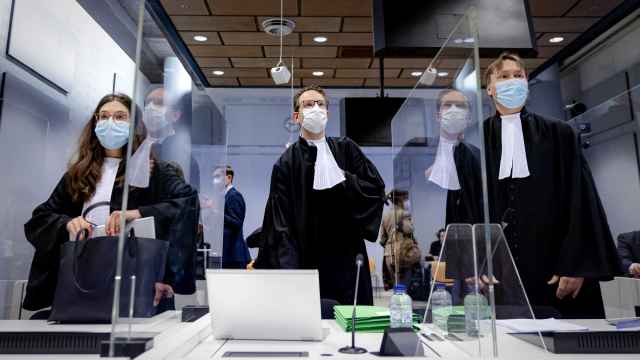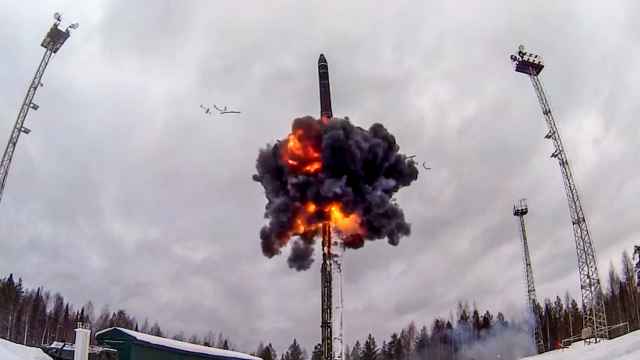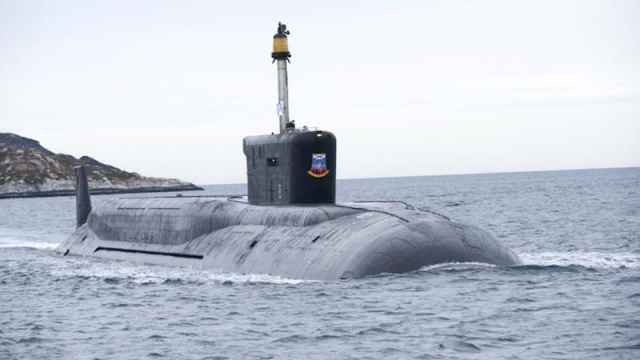Russia has ramped up the claim, internationally and domestically, that Ukraine is preparing to use a ‘dirty bomb’. This is a major escalation of military diplomacy and rhetoric. Will battlefield escalation follow?
On Oct. 23, Defense Minister Sergei Shoigu phoned his French, Turkish, British and American counterparts, in that order, to warn that Ukraine was planning to use a dirty bomb on its own territory. The next day, Chief of General Staff Valery Gerasimov repeated this to his U.S. counterpart, General Mark Milley. The claim is unfounded and Russia has provided no evidence to support it.
A dirty bomb – a conventional explosive including radioactive materials that would be dispersed by explosion – is an untested weapon of almost no military utility. Even if Ukraine did not currently have battlefield momentum, there would be little reason for it to contemplate using one. Western governments have emphatically rejected Russia’s unsupported claim.
Since Shoigu’s phone calls, other senior Russian figures have amplified the dirty-bomb claim, including Foreign Minister Sergei Lavrov and the head of the radiation, chemical and biological protection force in the Russian Ministry of Defense, Igor Kirillov. It has quickly become a dominant theme on Russian state television news and talk shows (though not all guests have been on-message). This is a concerted effort to instill an imagined threat in the wider population.
This flurry of military diplomacy and domestic propaganda comes against the backdrop of two developments, one on the battlefield and one at home. On the battlefield, Russia, having suffered major losses around Kharkiv in the northeast, is hard-pressed around Kherson in the south and is also losing ground around Bakhmut, its only area of recent gains.
In late October, Shoigu informed Putin that mobilization was complete. Just as its late and reluctant announcement just a month beforehand showed that the Kremlin realized how badly the war was going, mobilization's end shows the Kremlin understands the risks it faces by imposing excessive demands on Russian society.
Mobilization provoked deep anxiety across the country, yet it did not change the course of the war, and the Kremlin is now searching for less intrusive ways to organize society around its conduct. On Oct. 19, after imposing martial law on four occupied regions of Ukraine, Putin introduced new "alert levels" across Russia. These grant the authorities significant, and vaguely defined new powers to restrict or compel citizens’ movements, control assets and monitor communications. While this resembles a form of "martial law lite," it will be less effective than the military draft in helping the Kremlin prosecute the war.
It is clearer than ever that Russia – losing on the battlefield, and unable to mobilize society – cannot win the war. It can only hope to stop the war and limit further losses by imposing costs and making threats. It seeks to do so by escalating beyond the battlefield, with missile attacks to destroy a third of Ukraine’s electricity supply; with Iranian drones to terrorize urban populations; with suspected attacks on, and reconnaissance of, the West’s connectivity infrastructure; and by mining the Nova Kakhovka dam in Kherson, which gives it the option of flooding the whole area – a "drowned-earth" retreat to complement its more traditional scorched-earth tactics.
But none of these are game changers. And Russia knows that nuclear escalation is what most alarms the West. Its dangerous actions at the Zaporizhzhia nuclear power station have stoked concerns for months. In September, Putin amplified the threats he made at the start of the war to use nuclear weapons. Western states have since conveyed, publicly and privately, their warnings against doing so. Russia is now issuing its own, wholly unbelievable, warnings about a Ukrainian dirty bomb. What does it hope to achieve?
This is very unlikely to be a prelude to a directly equivalent false-flag attack – that is, Russia’s own use of a dirty bomb. This would incur international opprobrium, breaching the nuclear taboo by dispersing radiological material for negligible military gain. The real worry is that Russia might use an actual nuclear weapon. Kirillov inadvertently hinted at this by claiming that a Ukrainian dirty bomb would be a "provocation" that would fool the West into thinking that Russia had detonated "a low-yield fission weapon" – despite the ease of distinguishing conventional from nuclear explosions.
Three aspects of Shoigu’s calls deepen this concern. Firstly, apart from Turkey – which Russia sees as a messenger to the West and broker of agreements – he phoned only Western nuclear states. He pointedly did not call non-nuclear Germany, which, as a potentially weaker link in the Western alliance, would otherwise be an obvious target of an effort to influence Western policy. Secondly, Shoigu warned against "uncontrolled escalation" – a clear reference to the potential use of nuclear weapons beyond those used for limited, tactical purposes. Thirdly, he (and other Russian sources) accused Western countries, especially the United Kingdom, of helping Ukraine to build a dirty bomb.
Russia’s warnings have two possible explanations. The first is that Shoigu and Russia's state propagandists are doubling down on Putin’s nuclear bluff in the hopes of forcing the West to impose a ceasefire on Ukraine. If the West’s response, as before, is to make clear the consequences for Russia rather than to seek a compromise, this will be the third time Russia’s nuclear bluff has been called in this war.
The second is that this is a genuine if extraordinarily clumsy effort to create a pretext for nuclear escalation. As Russia faces further losses on the ground, growing unease at home, and substantial isolation abroad – including severe and growing sanctions – it faces the logic of diminishing choices: either end the war by fully withdrawing from Ukraine, or use – at terrible risk to itself – the most destructive means available for fighting it.
This article was originally published by the International Institute for Strategic Studies.
A Message from The Moscow Times:
Dear readers,
We are facing unprecedented challenges. Russia's Prosecutor General's Office has designated The Moscow Times as an "undesirable" organization, criminalizing our work and putting our staff at risk of prosecution. This follows our earlier unjust labeling as a "foreign agent."
These actions are direct attempts to silence independent journalism in Russia. The authorities claim our work "discredits the decisions of the Russian leadership." We see things differently: we strive to provide accurate, unbiased reporting on Russia.
We, the journalists of The Moscow Times, refuse to be silenced. But to continue our work, we need your help.
Your support, no matter how small, makes a world of difference. If you can, please support us monthly starting from just $2. It's quick to set up, and every contribution makes a significant impact.
By supporting The Moscow Times, you're defending open, independent journalism in the face of repression. Thank you for standing with us.
Remind me later.



